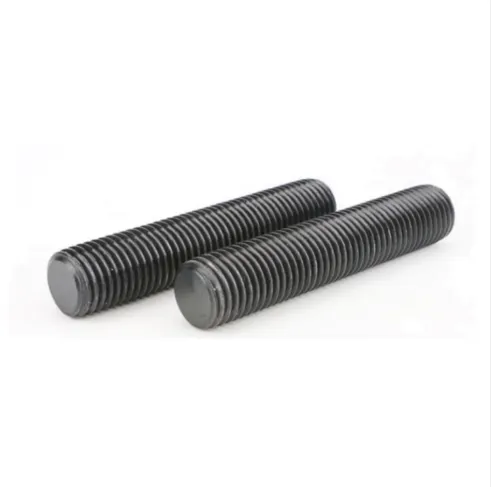High Quality U Bolts for Trailer Axles from Reliable Factory Supplier
Nov . 11, 2024 01:14 Back to list
High Quality U Bolts for Trailer Axles from Reliable Factory Supplier
Understanding Trailer Axle U-Bolts Importance, Manufacturing, and Quality
When it comes to the integrity and stability of trailers, one of the most crucial components is the axle system. At the heart of this system are U-bolts, which play a vital role in securing the axle to the trailer frame. Understanding the manufacturing of these U-bolts, especially from factories specializing in trailer axle components, is essential for anyone involved in the trailer industry, whether you are a manufacturer, distributor, or end user.
What are U-Bolts?
U-bolts are a type of fastener that is designed to secure components together, often in a U-shaped form. In the context of trailer axles, these bolts are used to attach the axle to the leaf springs, which support the weight of the trailer and provide stability during transport. U-bolts are typically made from high-strength steel and are coated to prevent corrosion, ensuring they withstand harsh environmental conditions.
Importance of Quality U-Bolts
The significance of high-quality U-bolts cannot be overstated. They must be able to withstand heavy loads, vibrations, and various weather conditions. A failure in the U-bolts can lead to catastrophic results, not only damaging the trailer but also posing safety risks on the road. Therefore, investing in U-bolts from a reputable factory that adheres to strict quality control measures is paramount.
Manufacturing Process
The manufacturing of U-bolts involves several critical steps, starting from raw material selection. Most U-bolts are made from high-carbon steel or alloy steel, which offers excellent tensile strength and durability. Factories typically begin by sourcing quality steel, which is then shaped into U-bolts using processes such as forging or bending.
1. Forging This is where the steel is heated and shaped under pressure. Forged U-bolts tend to have a finer grain structure, which improves their mechanical properties.
trailer axle u bolts factory

2. Bending In this process, straight pieces of steel are bent into the desired U-shape. While this method is also commonly used, forged U-bolts are often preferred due to their superior strength.
After the rods are formed into U-bolts, they go through heat treatment to enhance their toughness. This process typically involves heating the metal and then cooling it at a controlled rate.
Quality Control
Factories that produce U-bolts must have rigorous quality control protocols in place. This includes testing the tensile strength of the bolts, inspecting for surface defects, and ensuring that the dimensions meet specific engineering standards. Some manufacturers even provide certifications that demonstrate compliance with industry standards, such as ASTM (American Society for Testing and Materials) specifications.
Applications and Variations
U-bolts come in various sizes and configurations to accommodate different trailer designs. Depending on the type of trailer—be it a utility trailer, a boat trailer, or a semi-truck trailer—the U-bolts may vary in length, thickness, and width. It’s essential for manufacturers and distributors to understand the specific requirements of their customers to provide the right type of U-bolts.
Conclusion
In summary, trailer axle U-bolts are fundamental components that ensure the stability and safety of trailers on the road. The manufacturing process is intricate and requires precision engineering to create high-quality products that can withstand the operational demands of various trailer applications. Therefore, businesses involved in the trailer industry should prioritize sourcing U-bolts from reputable factories that uphold strict quality standards. By doing so, they can improve the longevity and safety of their trailers, protecting not just their investments but also the safety of all road users.
Latest news
-
High-Quality Panel Stud Bolt Reliable Panel Stud Bolt Factory & Suppliers
NewsJul.08,2025
-
High-Precision Fine Thread Locknuts Manufacturer & Supplier Custom Solutions
NewsJul.08,2025
-
PH Imperial Stud Bolt – High Strength Fasteners from Leading Supplier & Factory
NewsJul.07,2025
-
High-Quality Allen Wrench Bolts Leading Factory, Company & Suppliers
NewsJul.07,2025
-
Wholesale Ball Stud Bolt - High Quality Supplier & Factory Price Reliable Wholesale Ball Stud Bolt Company
NewsJul.06,2025
-
High-Strength Alloy Bolts Manufacturer & Supplier Quality Alloy Fasteners Factory
NewsJul.06,2025
